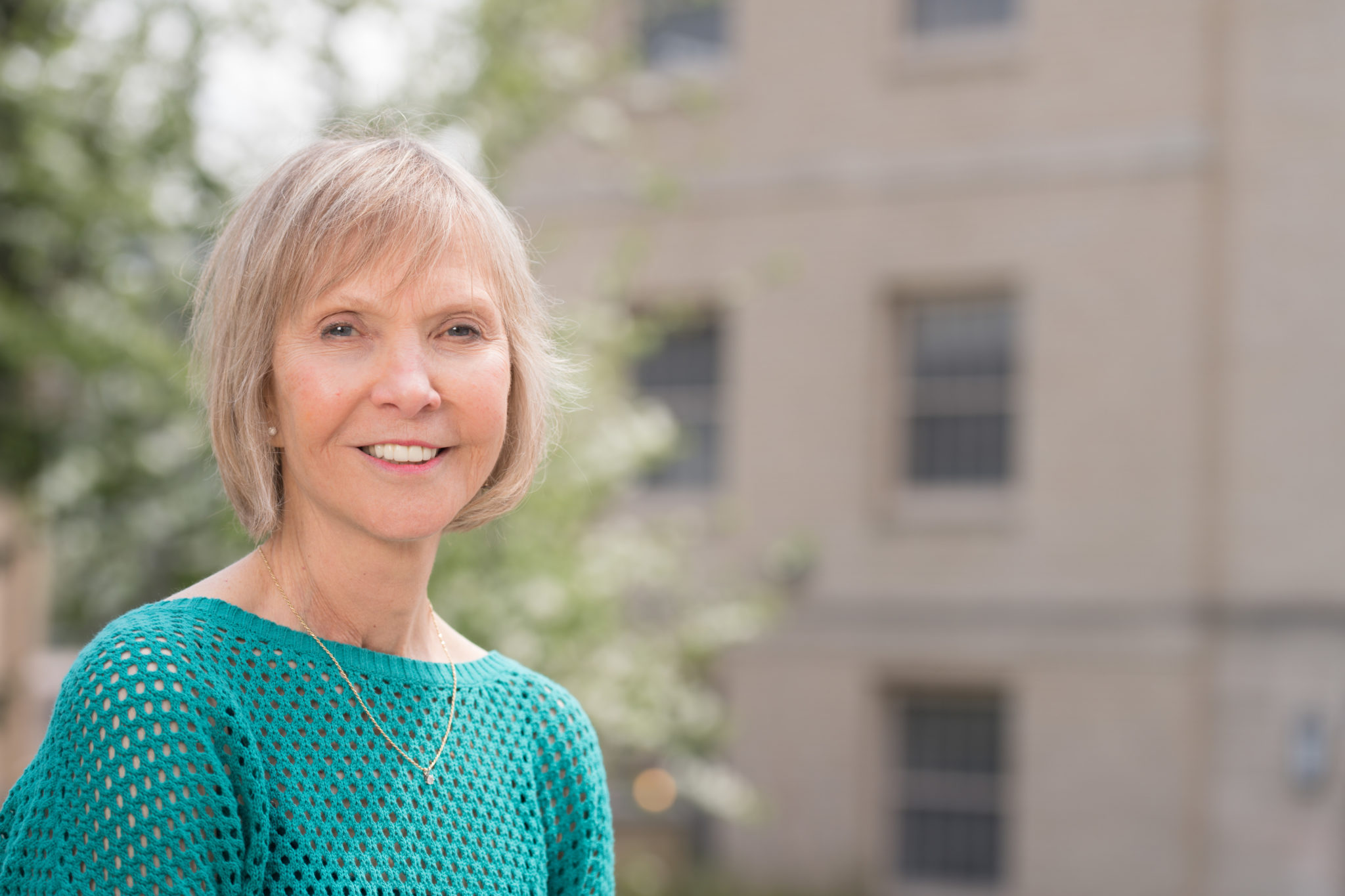
Colorado State University Distinguished Professor Diana Wall will be recognized for her outstanding contributions to soil biodiversity research. Photo: William A. Cotton/CSU Photography
By Davy Falkner, British Ecological Society
The British Ecological Society has announced that Diana Wall, Colorado State University Distinguished Professor, has been awarded the 2019 President’s Medal. The society’s president awards this prestigious honor at the end of each term of office – every two years – as a personal gift.
“Each year, the BES awards prizes to recognize and celebrate the exceptional contributions of individuals to advancing ecology and communicating its importance for society,” said Professor Richard Bardgett, president of the British Ecological Society.
“I am delighted to present this special award to Diana Wall for her outstanding contributions to soil biodiversity research, focused on Antarctic McMurdo Dry Valleys, but also for her enormous efforts in promoting the importance of soils and their ecology for tackling global environmental challenges. Diana is a true ambassador for the ecology of soil.”
CSU President Joyce McConnell said the award is “an extraordinary but also fitting honor for Dr. Wall, who is truly an internationally recognized researcher in ecology – and already a recipient of international recognition for her work.
Equality and diversity champions
Kelly Ramirez and Jane Zelikova, co-founders of 500 Women Scientists, a grassroots organization that has over 20,000 supporters worldwide, will also be recognized by the British Ecological Society at the conference.
The researchers, who launched 500 Women Scientists in 2016, are the driving force behind this initiative, which has brought equality and diversity to the forefront of the scientific community.
Ramirez, a soil ecologist, was a postdoctoral fellow with CSU’s School of Global Environmental Sustainability from 2012 to 2014. She earned a doctorate from the University of Colorado Boulder.
“The mission of the British Ecological Society, to work ‘towards a world inspired, informed and influenced by ecology,’ is one that Dr. Wall clearly embodies,” she added. “Her Antarctic soil research is teaching us an incredible amount about how species and ecosystems might respond to climate change. We are so proud to see her extraordinary work recognized at this level.”
Her own valley
Wall, who serves as the director of the School of Global Environmental Sustainability at CSU, went to Antarctica each summer season between 1989 and 2018, analyzing soil nematodes with collaborators and her CSU team. As recognition for her work on the continent, she had an Antarctic feature, Wall Valley, named after her in 2004.
Her research explores how life in soil contributes to healthy, fertile and productive soils and to society, and the consequences of human activities on soil globally. Recently, she spearheaded the development of a first-ever Global Soil Biodiversity Atlas with the European Commission. The atlas contains facts and spectacular photos of organisms including earthworms, nematodes, fungal species and soil-based bacteria.
Wall said that she was extremely honored to receive the President’s Medal.
“BES is globally recognized for significant contributions to ecology and society, making this award very special to me,” she said. “My thanks to Richard Bardgett, president of the British Ecology Society, the talented early career executive directors of the Global Soil Biodiversity Initiative, and the many dedicated colleagues whose enthusiasm and energy continues to support my research and the initiative. A note of appreciation also to my lab, my collaborators and to all ecologists past and present who so soundly embraced the fun, and urgency, of studying the fascinating life in soil.”
Wall, along with the nine winners of the other 2019 BES awards, will be presented with the President’s Medal during a ceremony at the society’s annual conference in December. The conference will bring together 1,200 ecologists from around 60 countries to discuss the latest advances in ecological research across the whole discipline.